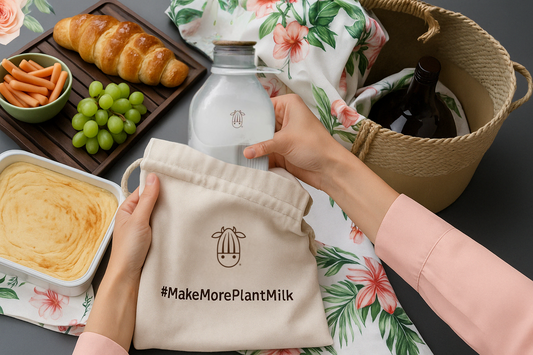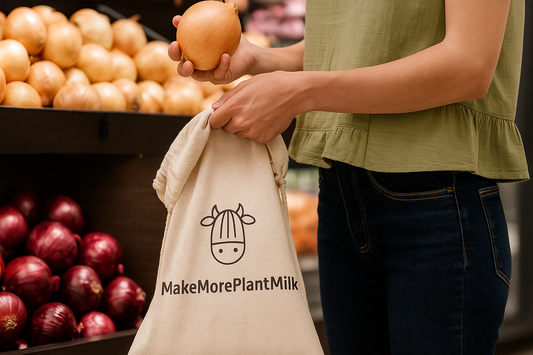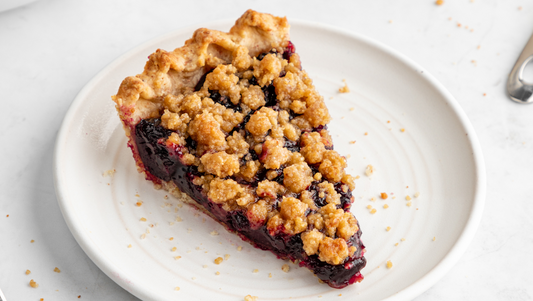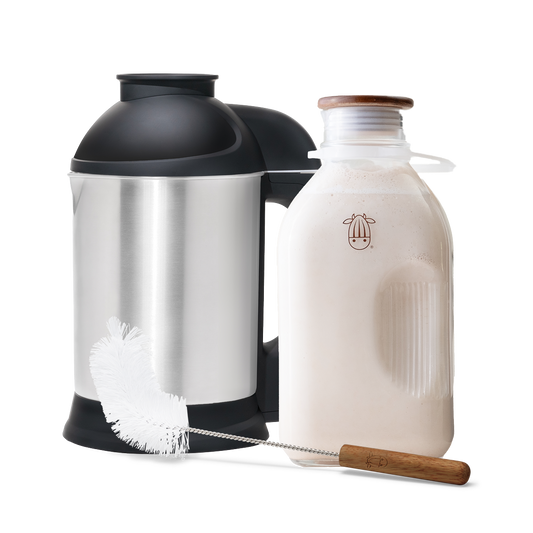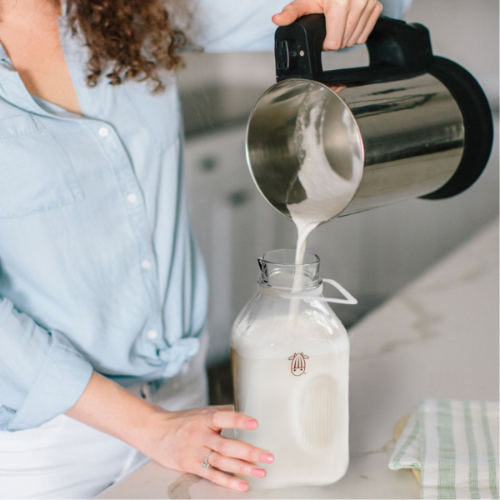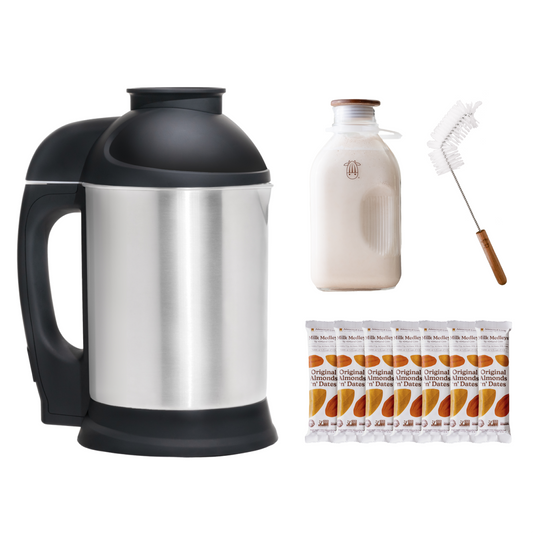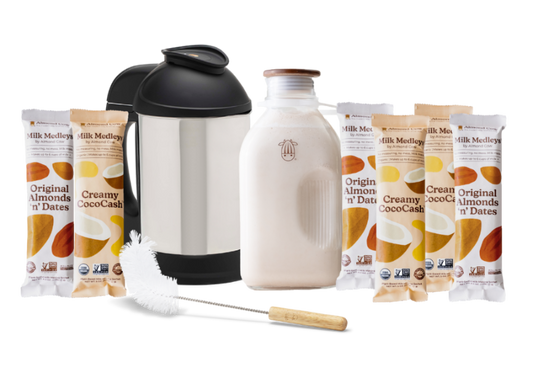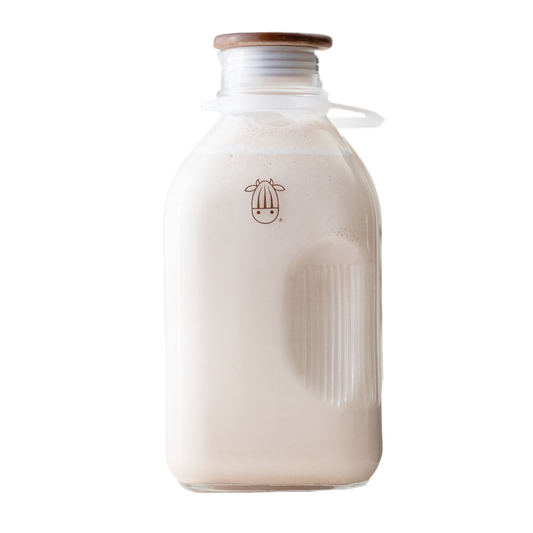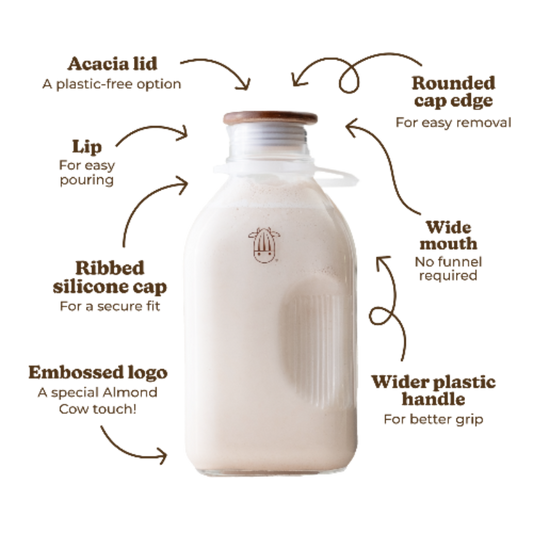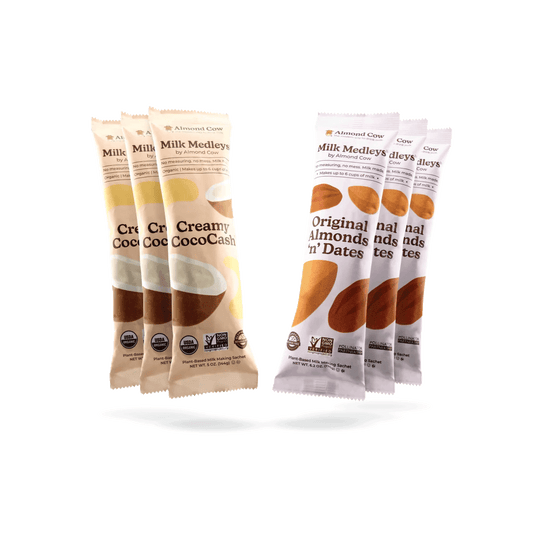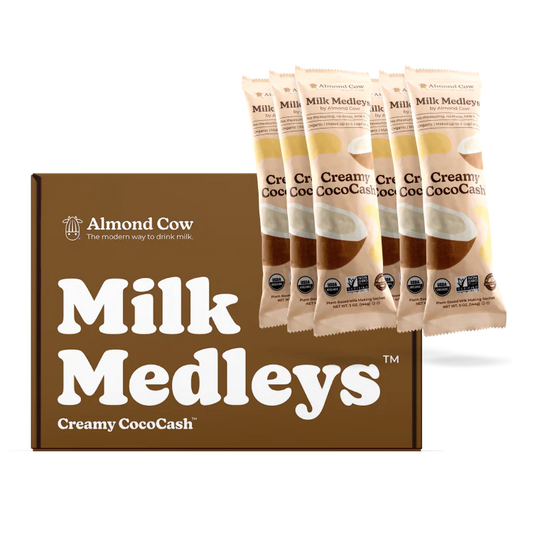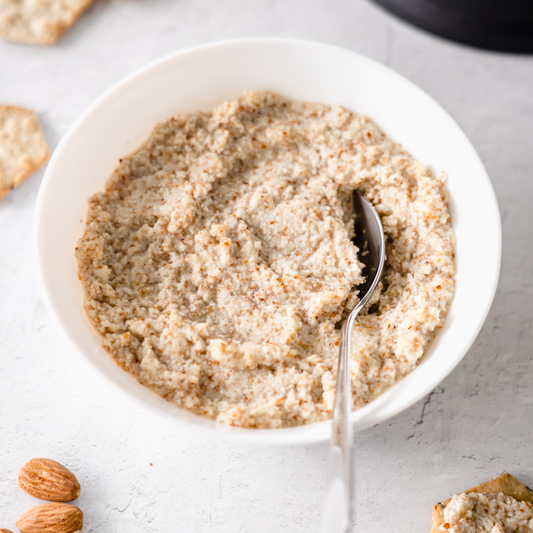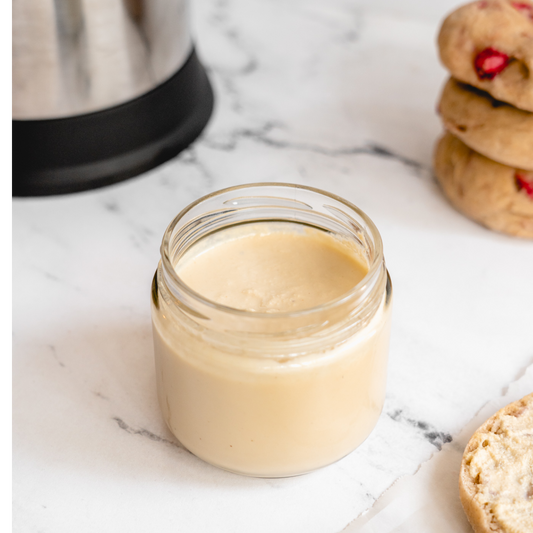3 Ways to Recycle Pulp
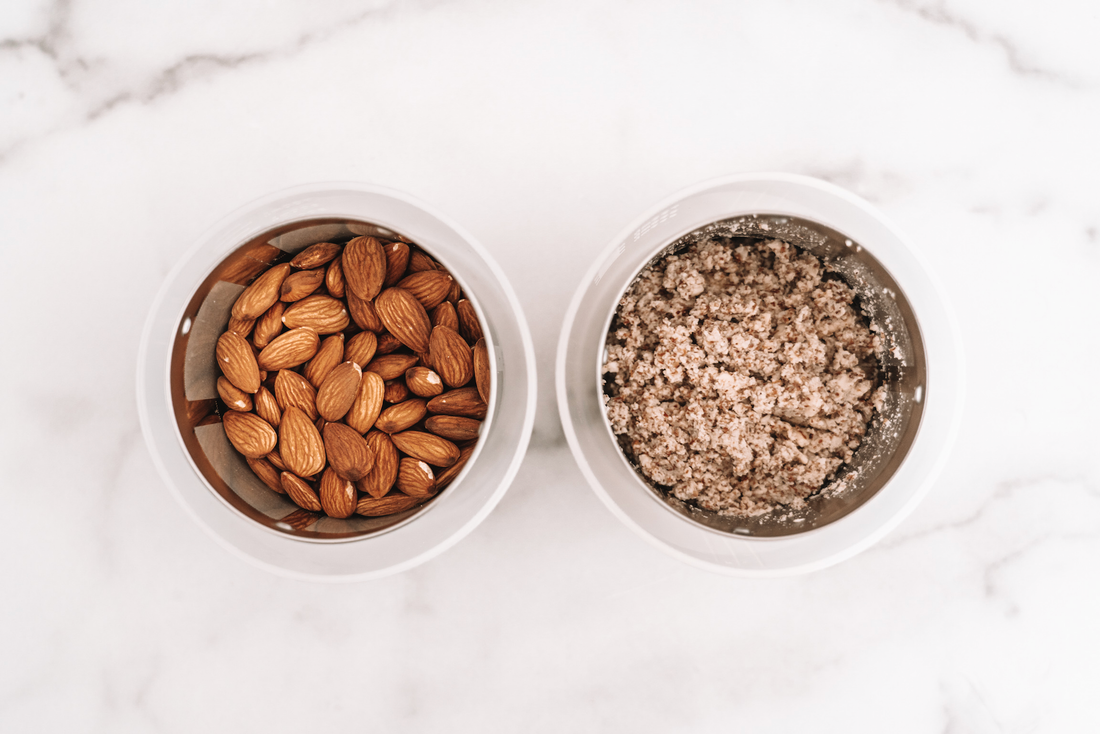
What to Do With Leftover Pulp When You Don't Want to Eat It
Option #1: Composting Leftover Pulp
One of our favorite ways to be eco-friendly is by using what we already have to compost in our own backyards, so that we can then grow healthy produce and plants with fertilizer made from our own food waste. Compost bins are made up of alternating layers of green waste, such as grass clippings or green leaves, and then brown waste, such as wood chips. After making fresh milk in your Almond Cow, we recommend putting your leftover pulp in the green layer of waste in your compost bin. Then when your compost pile is ready, the waste from your own yard and kitchen can be used as soil to provide your plants with the nutrients they need in order to thrive, produce food, and release oxygen.
From kitchen waste to plant food which grows into food for your family: the cycle of composting in your own backyard is a great way to make a positive impact on our world!
Option #2: Feeding Neighborhood Squirrels
You can also use the leftover pulp from your Almond Cow to feed the squirrels in your own backyard. The best type of pulp to feed your local neighbors are pulps from almonds, peanuts, pumpkin seeds, macadamia nuts, hazelnuts, walnuts, pecans or pistachios. This option is especially good if your pulps are free of any sweeteners or salts. However, please be sure to avoid feeding squirrels pulp from cashews, sunflower seeds, or pine nuts as these can be toxic to squirrels.
Option #3: Adding Leftover Pulp to a Bird Feeder
Have a bird feeder hung on your porch or in your backyard? We recommend putting the leftover pulp from your Almond Cow in the bird feeder. The neighborhood birds will absolutely love you for it, and you will be helping provide them with the fat that is crucial for their diet.
Whether you're not much of a baker or you simply don't have the time to always use the leftover pulp from your Almond Cow, we encourage you to join us in the movement to produce zero waste: recycling when we can, and being mindful of our human footprint with every small and large choice we make in our daily lives. This includes things like reusing the leftover pulp after making your favorite plant-based milk in your Almond Cow!
Sources:
https://www.exoticnutrition.com/unsafe-foods-for-squirrels.aspx
https://www.motherearthnews.com/organic-gardening/colorful-compost-zbcz2010
Oat Pulp Pancakes with Hazelnut Spread
Make a delicious, wholesome stack of our Oat Pulp Pancakes, topped with homemade hazelnut spread. We promise not to tell if you don't share!
Read MoreBeet Latte
Looking for a unique twist on the classic latte? Try our Beet Latte for all the deliciousness of a regular latte, combined with the nutritional power house of beets!
Read MoreIrish Creamer
Start St. Patrick's Day off right with Almond Cow's delicious Irish creamer recipe.
Read MoreRecipe Categories
Filter By
Additional Blog Detail:
Main Ingredient
Keywords
Meal occasion
Named holiday recipe






